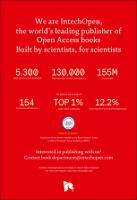Chapter Determinants and Tools to Evaluate the Ecological Sustainability of Using Forest Biomass as an Alternative Energy Source
| dc.contributor.author | Lo, Yueh-Hsin | |
| dc.contributor.author | Blanco, Juan A. | |
| dc.contributor.author | Candel-Pérez, D. | |
| dc.date.accessioned | 2021-06-02T10:10:34Z | |
| dc.date.available | 2021-06-02T10:10:34Z | |
| dc.date.issued | 2018 | |
| dc.identifier | ONIX_20210602_10.5772/intechopen.76005_364 | |
| dc.identifier.uri | https://library.oapen.org/handle/20.500.12657/49250 | |
| dc.description.abstract | Forest biomass, the most ancient of fuels, is again in the center of renewable energy production. This chapter provides an introductory view of the main factors that condition the ecological sustainability of this energy source. The basic concepts of ecological sustainability, ecological rotation, and ecological thresholds (among others) are presented. The state of the art on approaches to assess the sustainability of forest biomass production for heat and electricity is discussed, and tools available for decision-makers to evaluate the sustainability of forest biomass production and management are described. This chapter then describes the main advantages and drawbacks of forest certification, growth and yield tables, and ecological models in relationship to their use in sustainable forest management for biomass and energy production. | |
| dc.language | English | |
| dc.subject.classification | thema EDItEUR::T Technology, Engineering, Agriculture, Industrial processes::TV Agriculture and farming::TVR Forestry and silviculture | en_US |
| dc.subject.other | ecological modeling, alternative energy, green energy, district heating, sustainable forest management | |
| dc.title | Chapter Determinants and Tools to Evaluate the Ecological Sustainability of Using Forest Biomass as an Alternative Energy Source | |
| dc.type | chapter | |
| oapen.identifier.doi | 10.5772/intechopen.76005 | |
| oapen.relation.isPublishedBy | 09f6769d-48ed-467d-b150-4cf2680656a1 | |
| oapen.relation.isFundedBy | H2020-MSCA-IF-2014 | |
| oapen.grant.number | 656810 | |
| oapen.grant.acronym | DENDRONUTRIENT |

